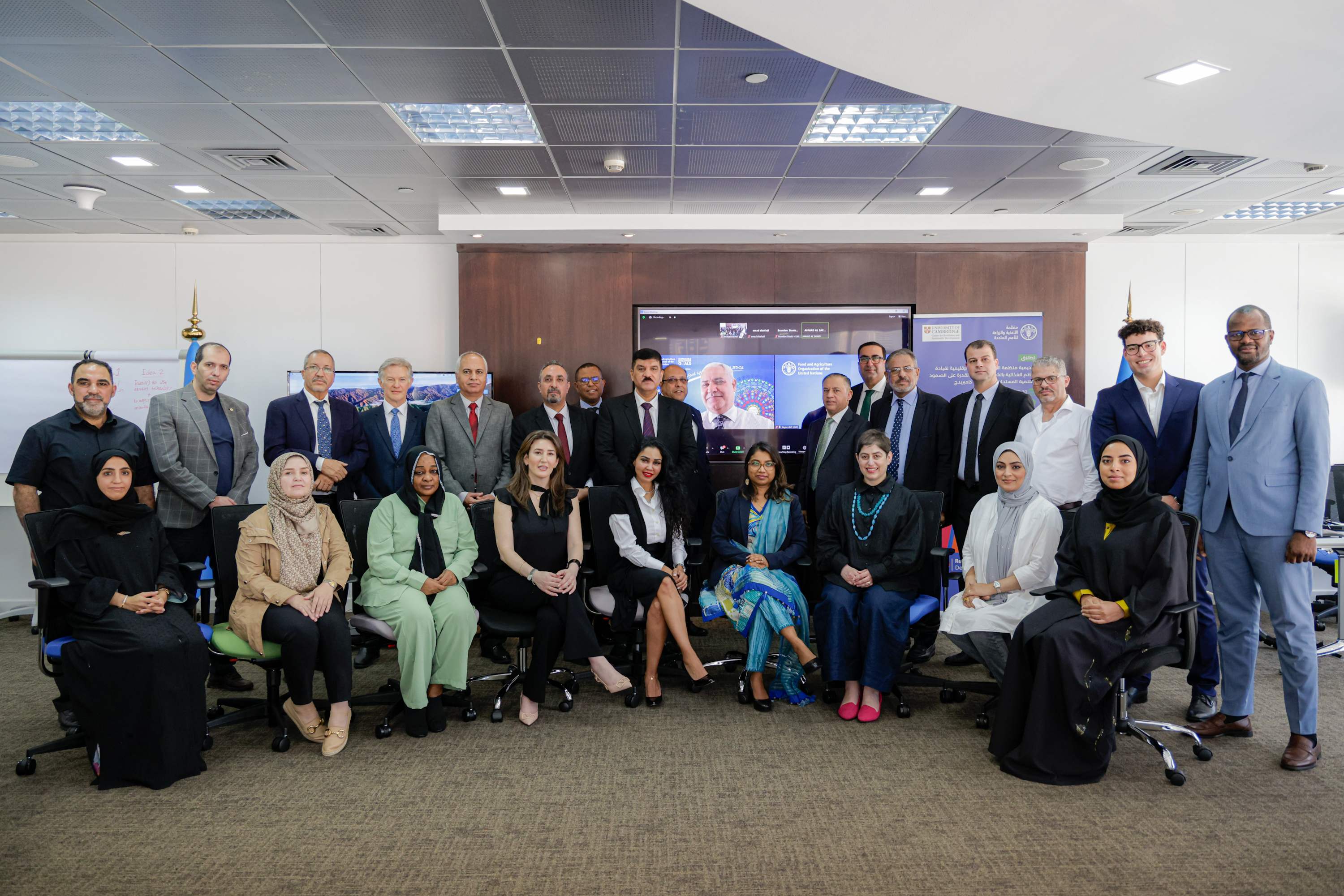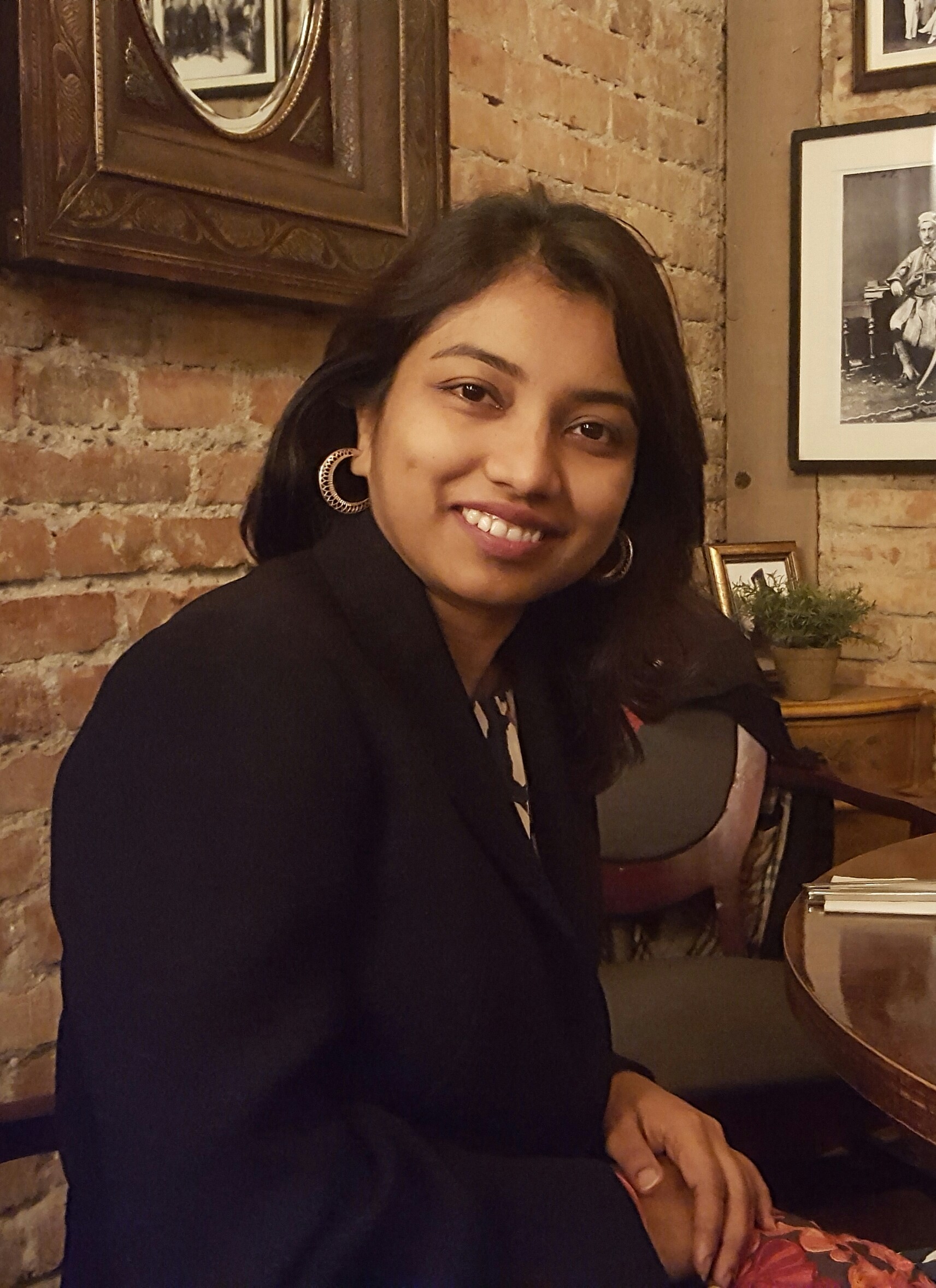In a significant step towards sustainable food system solutions, the Centre for Resilience and Sustainable Development (CRSD) at the University of Cambridge lead by Prof Nazia M Habib, in partnership with the Food and Agriculture Organisation of the United Nations (FAO), has successfully completed the inaugural THRIVE Academy workshop in Dubai (November 20-24, 2023). This groundbreaking event brought in key leaders from across the Near East and North Africa (NENA) region, offering training in the use of dynamic complex systems thinking in their decision-making. This teaches leaders to use innovative methodologies and skills, especically in integrating national pathways to combat food insecurity and hunger in line with the United Nations’ 2030 Agenda.
At the closing of the event, Dr Abdulhakim Elwaer, FAO Assistant Director-General and Regional Representative for the Near East and North Africa, commented:
It has been a long process of over two years of thinking deeply about how to formulate the structure of this Academy with the support of Dr Nazia Habib and the Centre for Resilience and Sustainable Development at the University of Cambridge… [CRSD], your tremendous effort has added great value to what we are trying to achieve [with regional food systems].
This is historic, this is something that has never happened in the FAO… this is a unique initiative that has not been seen in our other regions or at the global level.
The workshop was co-led by Prof. Nazia M. Habib of CRSD, Dr. Ahmad Mukhtar, Senior Economist and Head of Strategy and Policy for FAO, and Dr. Mohamed Galal, Strategic Advisor to the FAO Assistant Director-General for RNE. Participants included representatives from Sudan, Libya, UAE, Morocco, Jordan, Mauritania, Yemen, Egypt, Syria, and Iraq, highlighting these countries' diverse challenges and strategic importance in regional food security.
On the first day, following introductiory talks from Dr Abdulhakim Elwaer, FAO Assistant Director-General, Rt Hon Andrew Mitchell MP, UK Minister of State for Development and Africa and Prof Nazia Habib, Founder and Director of CRSD, we heard from senior fellow Mr Robbie Stamp about good leadership, Mr Richard Macklin and Ms Farzana Aslam who exposed the leaders to their executive coaching methods as useful options for building complexities and uncertainties. The day focussed on emphasising collaboration and resolving differences in leadership.
To ground the discussion in practical application, Mr Steve McCauley demonstrated the Creative Ideas Studio, an interactive platform for collaborative brainstorming and strategic planning, focusing on visualising improved food system scenarios for 2030, including sustainable practices, food security, and resilient supply chains.
The second day, the attendees were engaged by guest speakers Mr Ian Abbott-Donnelly, CRSD Associate Fellow, Prof Giles Yeo, University of Cambridge and Dr Mona Elsholkamy, Assistant Professor at MBRSG, and Dr Hannah Parris of CRSD, who discussed, demonstrated and trained local decision makers to critically navigate complex systems through systems-thinking techniques.
To exhibit the application of systems-thinking techniques to trainees, Dr Hannah Parris carried out a session dedicated to Cambridge Policy Power Mapping. This was an interactive session where participants engaged in hands-on exercises, applying the tool to real-world policy scenarios. This method enhanced their understanding of complex policy dynamics and stakeholder influence.
The third day looked to the key themes of empowerment and resilience in leadership. Prof Anil Madhavapeddy, University of Cambridge, and Prof Nazia Habib spoke on systemic risks and technological innovations, to train participants in identifying risks and incorporating solutions. Prof Jenny Mander, University of Cambridge, and Dr Cathal O'Madagain, Université Mohammad VI Polytechnique, offered trainees insight into inclusivity and the importance of storytelling in policy influence.
Situating the discussion with an interactive session, the CRSD team delivered a variation on our Cambridge Policy Boot Camp focusing on Identifying Untapped Assets, like community networks and local expertise, crucial for policy success and innovative solutions in food sustainability.
Day four presented the key theme of harmonising through collaboration as regards investing in food systems resilience. Training was offered by Dr Peter Hedges, University of Cambridge and Mr Saifullah Khan, CEO of Bizilance Legal Consultants.
In order to contextualise the training into food systems resilience, Prof Habib headed up a comprehensive session covering 9 Sustainable Investment Markers (9SIMS), teaching local leaders about collective assets management and ESG performance. This transformative tool evaluates companies based on analysis and communication of ESG investment drivers, utilising systems theories and accounting principles.
We look forward to sustained collaboration with the Academy, with the aim of encouraging collaborations between participants and organisers, specifically implementing strategies based on the insights gained. We hope that the methodologies and discussions from the workshop will siginicantly influence policy-making proccesses for sustainbale and resilient food systems. We look forward to expanding training and workshops to deepen the understanding and application of our innovative methodologies. We will support continued research and development efforts in addressing challenges and fostering innovative solutions for food sustainability, and will continue to offer training and support to the academy.
This inaugeral THRIVE academy workshop marked a significant step forward in addressing the challenges of sustainable food systems in the Near East and North Africa region. The engagement of participants from key countries and the insights shared by guest experts highlight the potential of collaborative efforts to create impactful and lasting solutions
For more information or to engage further with the initiatives and outcomes of the THRIVE Academy workshop:
Please get in touch with Prof. Nazia M. Habib, Founder and Director of the Centre for Resilience and Sustainable Development at the University of Cambridge. Prof. Habib can be reached via email at nsh29@cam.ac.uk.


